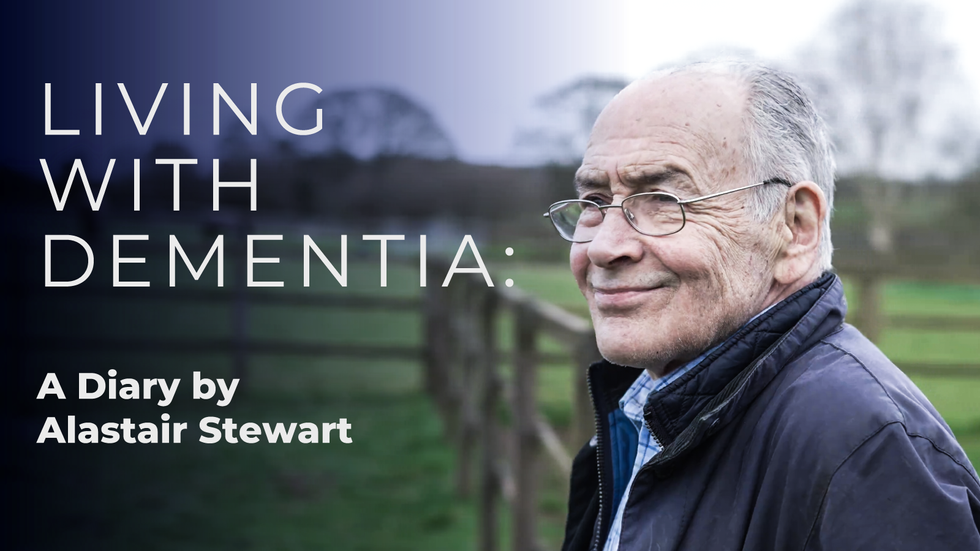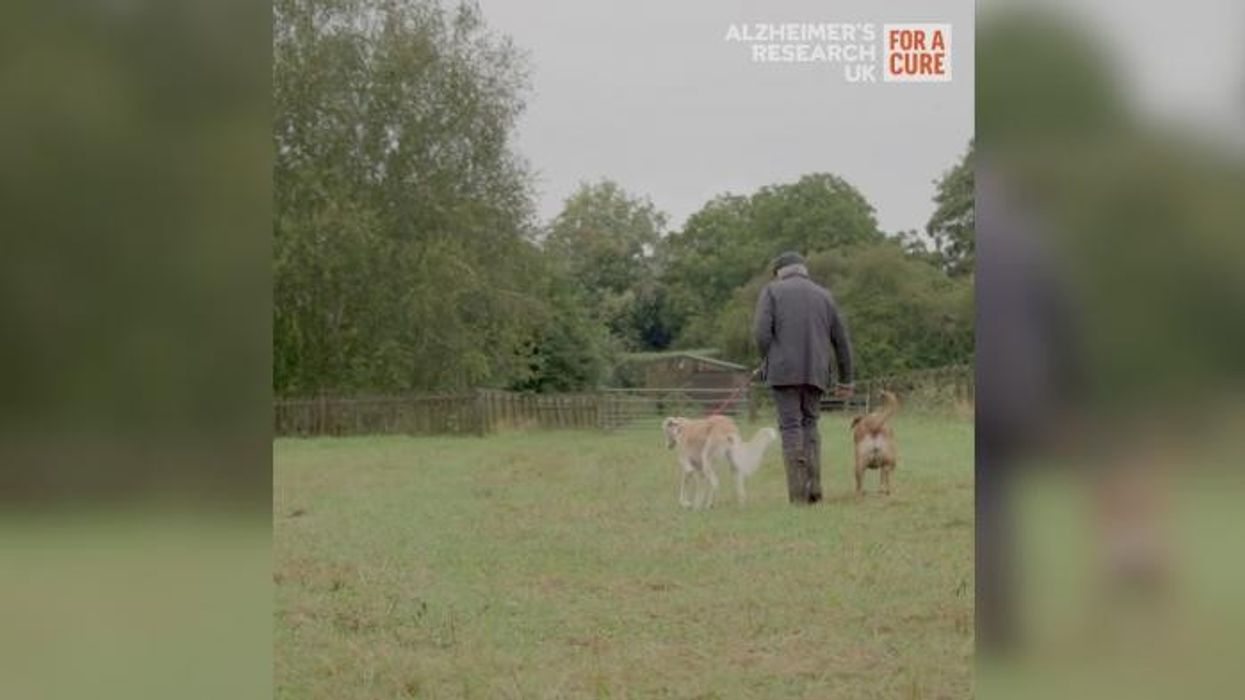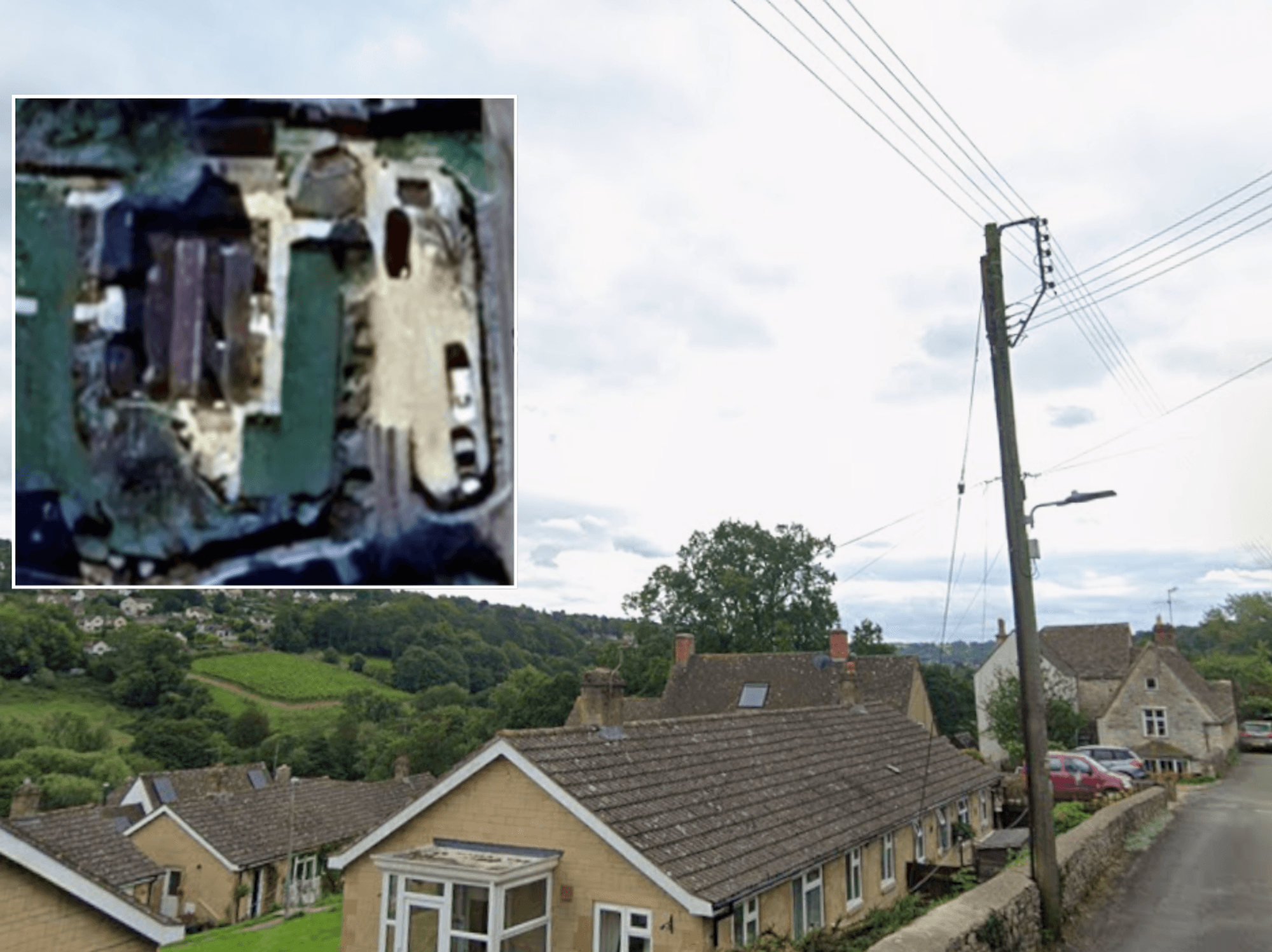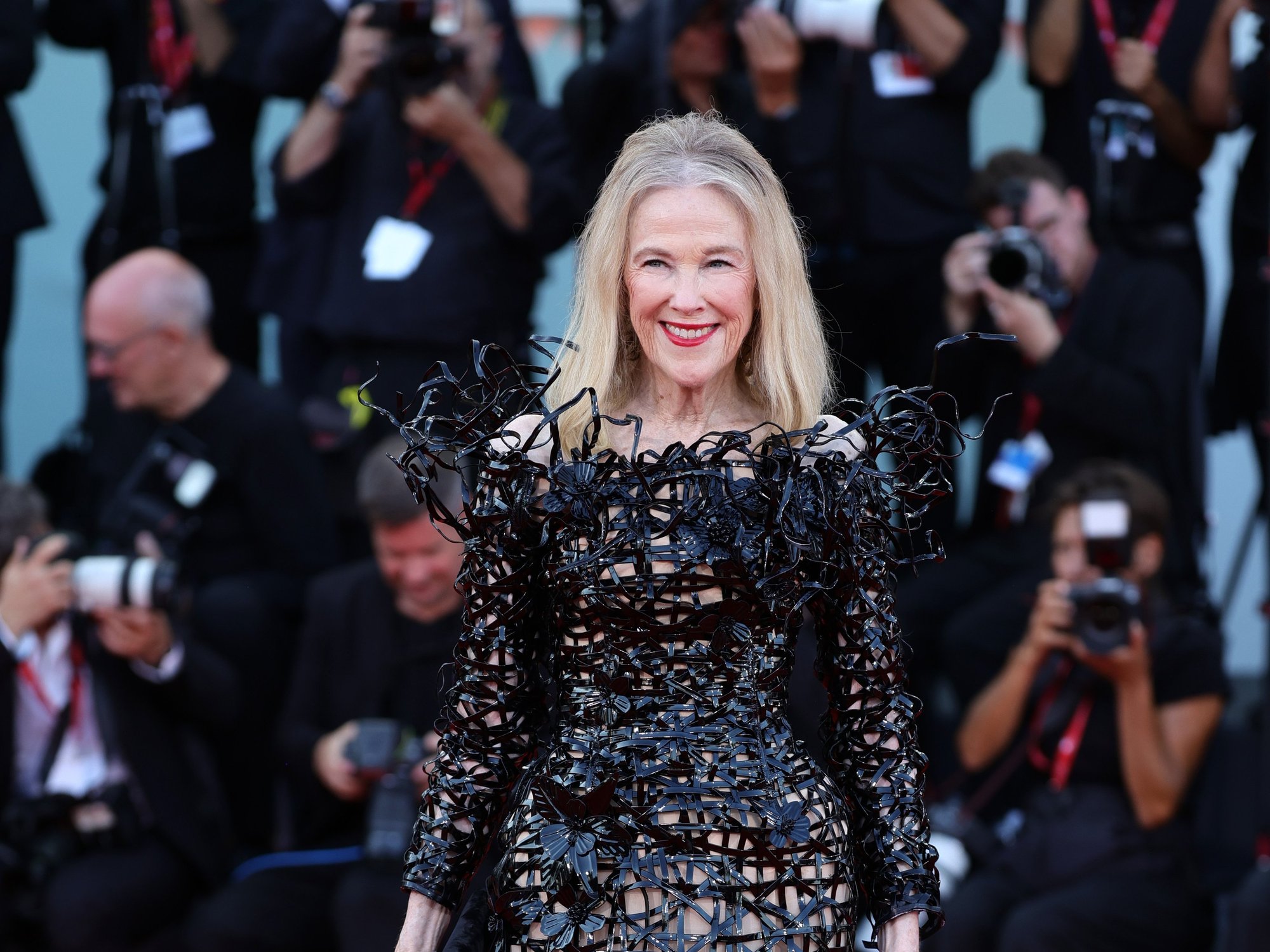Alastair Stewart: A catastrophic week for Labour with Rachel Reeves' rental fiasco the least of their worries

By Alastair Stewart
Published: 01/11/2025
- 23:01Updated: 03/11/2025
- 09:11Alastair Stewart reflects on a catastrophic week for Labour over tea with a dear friend in this week's Living With Dementia
Don't Miss
Most Read
It seems a while ago now, but earlier in the week, there was a remarkable political event in Wales.
The Caerphilly by-election, on 23 October 2025, was held to elect a new Member of the Senedd (MS) for the Caerphilly constituency, following the death of Hefin David.
By-elections to the Welsh Senedd are rare and usually don’t draw much attention from outside Wales. However, this one was different.
The Caerphilly by-election was seen as a key test ahead of the Welsh elections in May.
And a swing of 27 per cent from Labour to Plaid Cymru, coupled with a 30 per cent fall in Labour’s vote, saw the party lose the seat for the first time in a century.
Labour’s collapse in Caerphilly was a catastrophic humiliation for Starmer.
The by-election was a two-horse race, and Reform UK was beaten into second place by Plaid Cymru, who secured a majority of nearly 4,000. Welsh Labour came a distant third, its vote collapsing by around 30 per cent.

Alastair Stewart: A catastrophic week for Labour with Rachel Reeves' rental fiasco the least of their worries
| GB NEWSAs Machiavelli wrote in The Prince, “Fortune is the arbiter of half our affairs…” and, as fortune would have it, a dear friend, Ruari McCallion, who knows a great deal about Welsh politics, was due to take me out for tea, as he has often done since my dementia diagnosis.
He has been a firm and loyal friend, as he always was.
Ruari McCallion has been a freelance writer for over twenty years. Before that, he was, variously, a DJ, musician, racing driver, and investment analyst and adviser.
He also served as marketing director of a contract furnishing company, with particular responsibility for the profits of a country pub.
Born in England to Scottish parents with Irish ancestry, he lived in Wales for five years while studying at Swansea, where I first met him.
We were both involved in student politics and the National Union of Students (NUS), of which I was Deputy President.
We were both on the Broad Left group of communists, Labour members, and non-aligned “lefties”, which held sway for most of the 1980s and 1990s.
We’ve kept in touch ever since.
As a top writer on British industry, technology, and related subjects, he was a regular and welcome guest on my weekend GB News shows, before my diagnosis forced early retirement.
Over tea, we talked about many things, but I wanted his take on Labour’s catastrophe in Caerphilly. I asked if he thought it was due to Plaid’s fresh new leader,
Rhun ap Iorwerth, elected in June 2023.
Ruari thought not, although he agreed that Rhun hadn’t put a foot wrong.
He felt the real problem was that Labour’s UK leader, Prime Minister Sir Keir Starmer, hadn’t campaigned in Caerphilly at all.
Ruari said it came down to the collapse in Labour’s vote due to ineptitude at the national level.
Until Labour re-engages with its working-class roots, he said, they are doomed.
The 2026 Senedd election is due to be held on 7 May, to elect all 96 members. Unlike a by-election, this one is about the government of Wales itself.
We moved on to talk about our old NUS days and one initiative I remain most proud of, the NUS/IUS joint membership scheme.
It meant that anyone in higher education north or south of the border between Northern Ireland and the Republic would be a member of both unions.
Students at Queen’s Belfast could use the facilities of Trinity Dublin, and vice versa.
It may seem a small thing now, but it was a step in a less sectarian direction.
I was chief negotiator for NUS UK, which meant many visits north and south.
I recalled one such visit. After landing at Aldergrove and collecting my bag, I was heading through immigration when a man in cavalry-twill trousers and a tweed jacket — the “special branch uniform”, called me over. He asked where I was going and who I was seeing.
In my youthful lefty arrogance, I told him it was none of his business. As a UK passport holder and citizen, I said, I was free to roam. I mentioned that I was Deputy President of the NUS.
He replied curtly that he didn’t care, but he knew my father was a senior officer at an RAF Bomber Command station. “That’s why you’re of interest,” he said.
I complied and moved on, but it was a chilling moment I’ll never forget. It doesn’t always matter who you are or how important you might think you are.
If Labour’s Caerphilly candidate had a bad week, the Chancellor, Rachel Reeves, probably got even less sleep.
She spent time in Saudi Arabia attending the Future Investment Initiative Conference in Riyadh, alongside other world finance ministers, business and finance leaders, and many members of the Saudi royal family.
This won’t do her standing in the Labour ranks much good, given their concerns over human rights issues.
It reminded me of occasions in the 1980s and 1990s when I chaired the Riyadh Economic Forum, an early Saudi attempt at a kind of “Davos in the Desert”.
It was fun and very lucrative. I stopped doing it when the Saudi government decided that a Saudi national had to chair it.
They were great conferences, and I remember with pride interviewing the likes of Alan Greenspan, former Chair of the US Federal Reserve; Lech Wałęsa, former President of Poland and founder of Solidarity — so important in the Velvet Revolution that freed Eastern Europe and brought about the death of Soviet Communism.
I also interviewed Richard Branson, who refused to take questions unless the women and men sat together.
The hosts reluctantly agreed, a conscious stunt by Richard, perhaps, but it yielded a small yet important step forward.
Virgin now flies regularly between London and Riyadh, and, as it happens, our son-in-law Brian used them for his current visit and said they were terrific.
Reeves again spoke about the wealthy having to pay more towards the UK state and all that it does. Labour supporters will lap that up, but it is short-sighted nonsense.
The conference was sponsored by Fortune 500 companies, the very wealth and job-creating innovators that power any economy. They, not the government, are the true motors of growth.
The Office for Budget Responsibility downgraded its forecast for growth and productivity just weeks before next month’s UK Budget, disastrous for Reeves.
Her boss, Starmer, failed to reassure anyone at Prime Minister’s Questions when he repeatedly declined to rule out breaking his manifesto pledge not to raise tax or National Insurance on working people.
More nonsense, rises are inevitable, and the wealthy, who already pay the bulk of taxation, are not a bottomless pit.
The week ended with another Reeves disaster. She admitted she’d tried to let her private home in Southwark without obtaining the required special licence.
Upon becoming Chancellor of the Exchequer, which comes with free accommodation in Downing Street, she said it had been an “honest oversight”.
Starmer agreed and ruled out an investigation.
At least Angela Rayner had the good grace, in similar circumstances, to refer herself for investigation. Reeves is looking very shaky indeed.
By Thursday evening, a letting agent had come forward to seemingly admit they were to blame for the whole saga.
Have we heard the last of this?
Don’t bet your house on it, Ms Reeves….
“A disastrous week for Reeves…and a catastrophic humiliation for Starmer”.
It seems a while ago now, but earlier in the week, there was a remarkable political event in Wales.
The Caerphilly by-election, on 23 October 2025, was held to elect a new Member of the Senedd (MS) for the Caerphilly constituency, following the death of Hefin David.
By-elections to the Welsh Senedd are rare and usually don’t draw much attention from outside Wales. However, this one was different.
The Caerphilly by-election was seen as a key test ahead of the Welsh elections in May.
And a swing of 27 per cent from Labour to Plaid Cymru, coupled with a 30 per cent fall in Labour’s vote, saw the party lose the seat for the first time in a century.
Labour’s collapse in Caerphilly was a catastrophic humiliation for Starmer.
The by-election was a two-horse race, and Reform UK was beaten into second place by Plaid Cymru, who secured a majority of nearly 4,000.
Welsh Labour came a distant third, its vote collapsing by around 30 per cent.
As Machiavelli wrote in The Prince, “Fortune is the arbiter of half our affairs…” and, as fortune would have it, a dear friend, Ruari McCallion, who knows a great deal about Welsh politics, was due to take me out for tea, as he has often done since my dementia diagnosis.
He has been a firm and loyal friend, as he always was.
Ruari McCallion has been a freelance writer for over twenty years.
Before that, he was, variously, a DJ, musician, racing driver, and investment analyst and adviser.
He also served as marketing director of a contract furnishing company, with particular responsibility for the profits of a country pub.
Born in England to Scottish parents with Irish ancestry, he lived in Wales for five years while studying at Swansea, where I first met him.
We were both involved in student politics and the National Union of Students (NUS), of which I was Deputy President.
We were both on the Broad Left group of communists, Labour members, and non-aligned “lefties,” which held sway for most of the 1980s and 1990s.
We’ve kept in touch ever since.
As a top writer on British industry, technology, and related subjects, he was a regular and welcome guest on my weekend GB News shows, before my diagnosis forced early retirement.
Over tea, we talked about many things, but I wanted his take on Labour’s catastrophe in Caerphilly.
I asked if he thought it was due to Plaid’s fresh new leader, Rhun ap Iorwerth, elected in June 2023.
Ruari thought not, although he agreed that Rhun hadn’t put a foot wrong.
He felt the real problem was that Labour’s UK leader, Prime Minister Sir Keir Starmer, hadn’t campaigned in Caerphilly at all.
Ruari said it came down to the collapse in Labour’s vote due to ineptitude at the national level. Until Labour re-engages with its working-class roots, he said, they are doomed.
The 2026 Senedd election is due to be held on 7 May, to elect all 96 members. Unlike a by-election, this one is about the government of Wales itself
We moved on to talk about our old NUS days and one initiative I remain most proud of, the NUS/IUS joint membership scheme.
It meant that anyone in higher education north or south of the border between Northern Ireland and the Republic would be a member of both unions. Students at Queen’s Belfast could use the facilities of Trinity Dublin, and vice versa.
It may seem a small thing now, but it was a step in a less sectarian direction. I was chief negotiator for NUS UK, which meant many visits north and south.
I recalled one such visit. After landing at Aldergrove and collecting my bag, I was heading through immigration when a man in cavalry-twill trousers and a tweed jacket — the “special branch uniform”, called me over. He asked where I was going and who I was seeing.
In my youthful lefty arrogance, I told him it was none of his business.
As a UK passport holder and citizen, I said, I was free to roam. I mentioned that I was Deputy President of the NUS.
He replied curtly that he didn’t care, but he knew my father was a senior officer at an RAF Bomber Command station. “That’s why you’re of interest,” he said.
I complied and moved on, but it was a chilling moment I’ll never forget. It doesn’t always matter who you are or how important you might think you are.
If Labour’s Caerphilly candidate had a bad week, the Chancellor, Rachel Reeves, probably got even less sleep.
She spent time in Saudi Arabia attending the Future Investment Initiative Conference in Riyadh, alongside other world finance ministers, business and finance leaders, and many members of the Saudi royal family.
This won’t do her standing in the Labour ranks much good, given their concerns over human rights issues.
It reminded me of occasions in the 1980s and 1990s when I chaired the Riyadh Economic Forum, an early Saudi attempt at a kind of “Davos in the Desert.”
It was fun and very lucrative. I stopped doing it when the Saudi government decided that a Saudi national had to chair it.
They were great conferences, and I remember with pride interviewing the likes of Alan Greenspan, former Chair of the US Federal Reserve; Lech Wałęsa, former President of Poland and founder of Solidarity — so important in the Velvet Revolution that freed Eastern Europe and brought about the death of Soviet Communism.
I also interviewed Richard Branson, who refused to take questions unless the women and men sat together.
The hosts reluctantly agreed, a conscious stunt by Richard, perhaps, but it yielded a small yet important step forward.
Virgin now flies regularly between London and Riyadh, and, as it happens, our son-in-law Brian used them for his current visit and said they were terrific.
Reeves again spoke about the wealthy having to pay more towards the UK state and all that it does.
Labour supporters will lap that up, but it is short-sighted nonsense.
The conference was sponsored by Fortune 500 companies, the very wealthy and job-creating innovators that power any economy. They, not the government, are the true motors of growth.
The Office for Budget Responsibility downgraded its forecast for growth and productivity just weeks before next month’s UK Budget, disastrous for Reeves.
Her boss, Starmer, failed to reassure anyone at Prime Minister’s Questions when he repeatedly declined to rule out breaking his manifesto pledge not to raise tax or National Insurance on working people.
More nonsense, rises are inevitable, and the wealthy, who already pay the bulk of taxation, are not a bottomless pit.
The week ended with another Reeves disaster. She admitted she’d tried to let her private home in Southwark without obtaining the required special licence.
Upon becoming Chancellor of the Exchequer, which comes with free accommodation in Downing Street, she said, it had been an “honest oversight”.
Starmer agreed and ruled out an investigation.
At least Angela Rayner had the good grace, in similar circumstances, to refer herself for investigation. Reeves is looking very shaky indeed.
By Thursday evening, a letting agent had come forward to seemingly admit they were to blame for the whole saga.
Have we heard the last of this?
Don’t bet your house on it, Ms Reeves.











